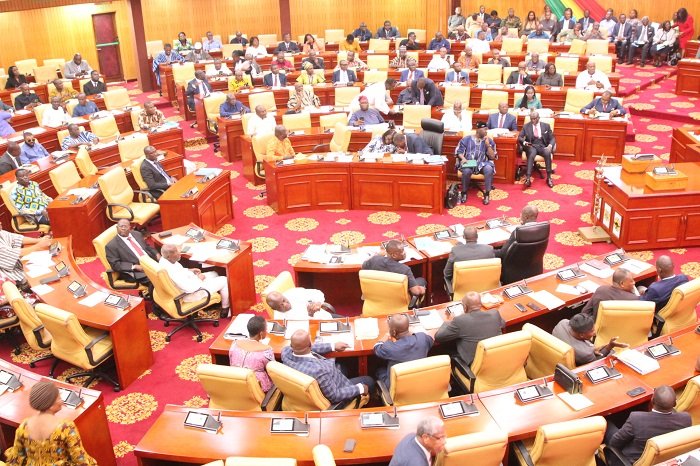ARTICLE AD
Though characteristic of the government to spend more during election year within the last two decades, the Minister of Finance, Dr Mohammed Amin Adam, yesterday announced a downward review of government expenditure for 2024.
He said total expenditure (commitment) had been revised downward by 2.1 per cent, to GH¢219.7 billion (21.5 per cent of Gross Domestic Product) from the original budget projection of GH¢226.7 billion (21.6 per cent of GDP).

In view of the cut in expenditure, the Finance Minister did not ask for supplementary funds in the 2024 mid-year review and did not introduce new tax measures to shore up revenue.
Presenting a statement on the 2024 Mid-Year fiscal policy review on the budget statement and economic policy of the government to Parliament yesterday, Dr Adam said the revision of expenditure was “largely on the back of interest payments which had been revised downwards by GH¢7.9 billion to reflect the impact of the external debt restructuring on external interest payment.”
The presentation of the Mid-year budget review to parliament is in line with Section 28 of the Public Financial Management Act, 2016 (Act 921), which enjoins the Minister to present to Parliament, the Mid-Year Fiscal Policy Review of the Budget Statement and Economic Policy of the government for the 2024 financial year.
The review, among others, provided an update on the implementation of the 2024 Budget, with insights into the economic and fiscal performance for the first half of the year, including updates on growth measures, revenue, and expenditure performance, financing, debt sustainability, and related matters as well as the International Monetary Fund (IMF)-supported Post Covid-19 Programme for Economic Growth (PC-PEG).
It also highlighted budget implementation for the rest of the year and review of proposed policies on growth with a focus on Small and Medium Enterprises (SME) growth, status on implementation of key government programmes, revenue measures, and expenditure controls, and financing adjustments based on the half-year performance.
Dr Adam said the government was determined to stay the course on the country’s fiscal consolidation programme and would spend within the budget for 2024.
The Finance Minister assured that attention would continue to be given to prudent management of approved expenditures and improved revenue mobilisation.
“The stabilisation is real. We are determined to be more efficient, strategic and intentional to entrench fiscal consolidation and strongly promote growth,” he stated.
The Finance Minister said the government would spend within appropriation, and in line with that would “Reinstate the fiscal rules on the five per cent deficit threshold, which we suspended in 2020, in 2025.”
Dr Adam said in spite of the cut in expenditure, the government had invested massively on roads and other public infrastructure.
For instance, he said government had invested almost GH¢10 billion on road infrastructure since the beginning of the year to enhance transportation and enhance economic growth.
The Finance Minister said the government was developing a framework for the re-introduction of Road and Bridge Tolls to facilitate the processes for the implementation of a modernised and efficient road and bridge tolling system commencing in 2025.
Dr Adam said in spite of the difficult economic challenges, the government was investing massively on social intervention programmes such as the School Feeding Programme and the Livelihood Empowerment Against Poverty.
The Finance Minister disclosed that signs of strong macroeconomic performance were emerging as demonstrated by the macroeconomic indicators for the first half of the year, with growth soaring to 4.7 per cent from a target of 3.1 per cent as well as inflation trending down to 22.8 per cent from about 54 per cent in December 2022.
He said the economy was on the path of growth and macroeconomic stability due to the International Monetary Fund supported Post-Covid Programme for Economic Growth.
BY KINGSLEY ASARE

 3 months ago
22
3 months ago
22 

